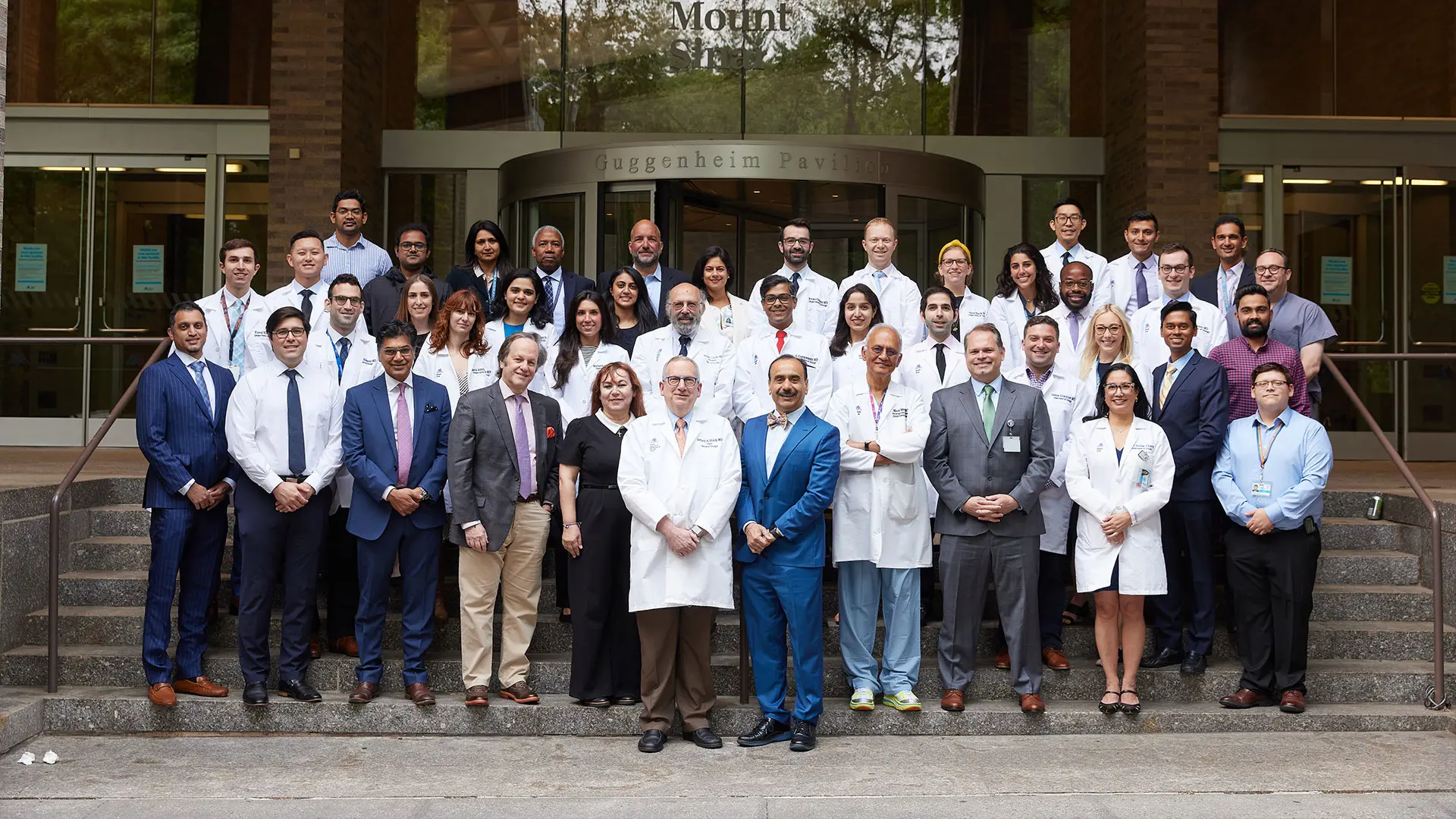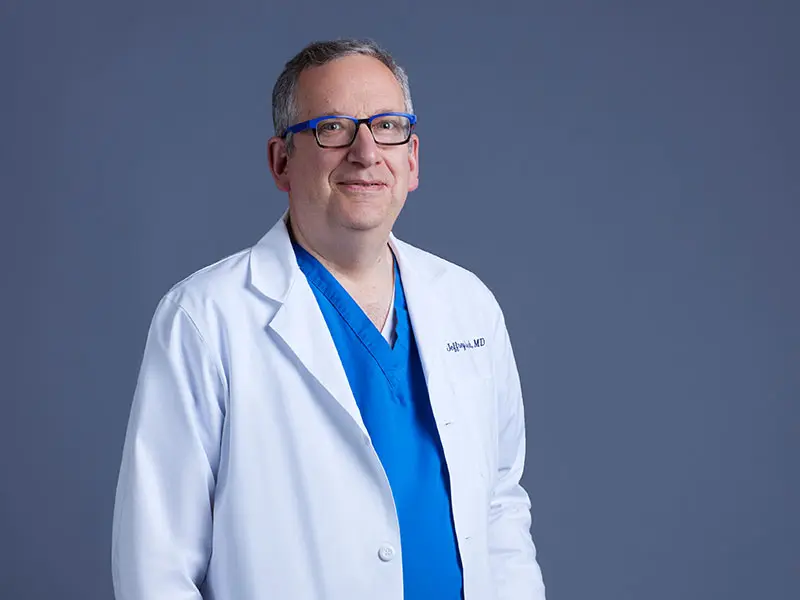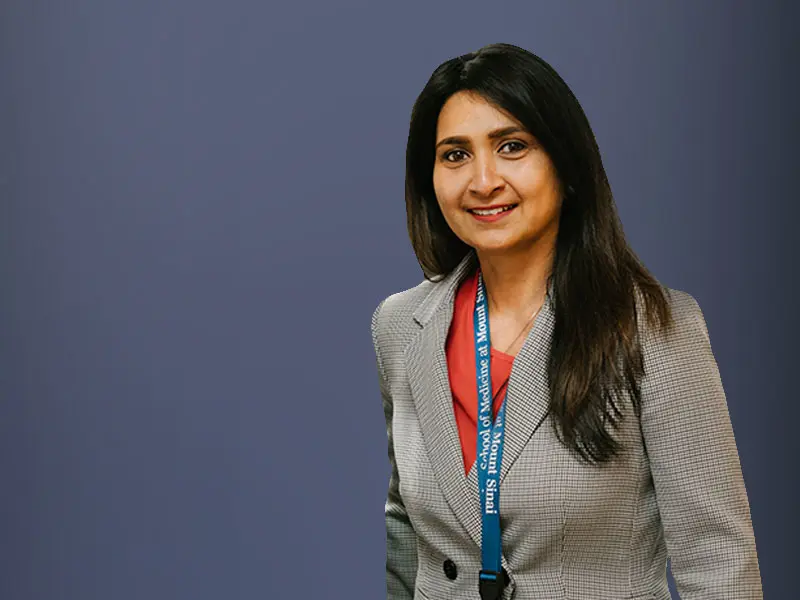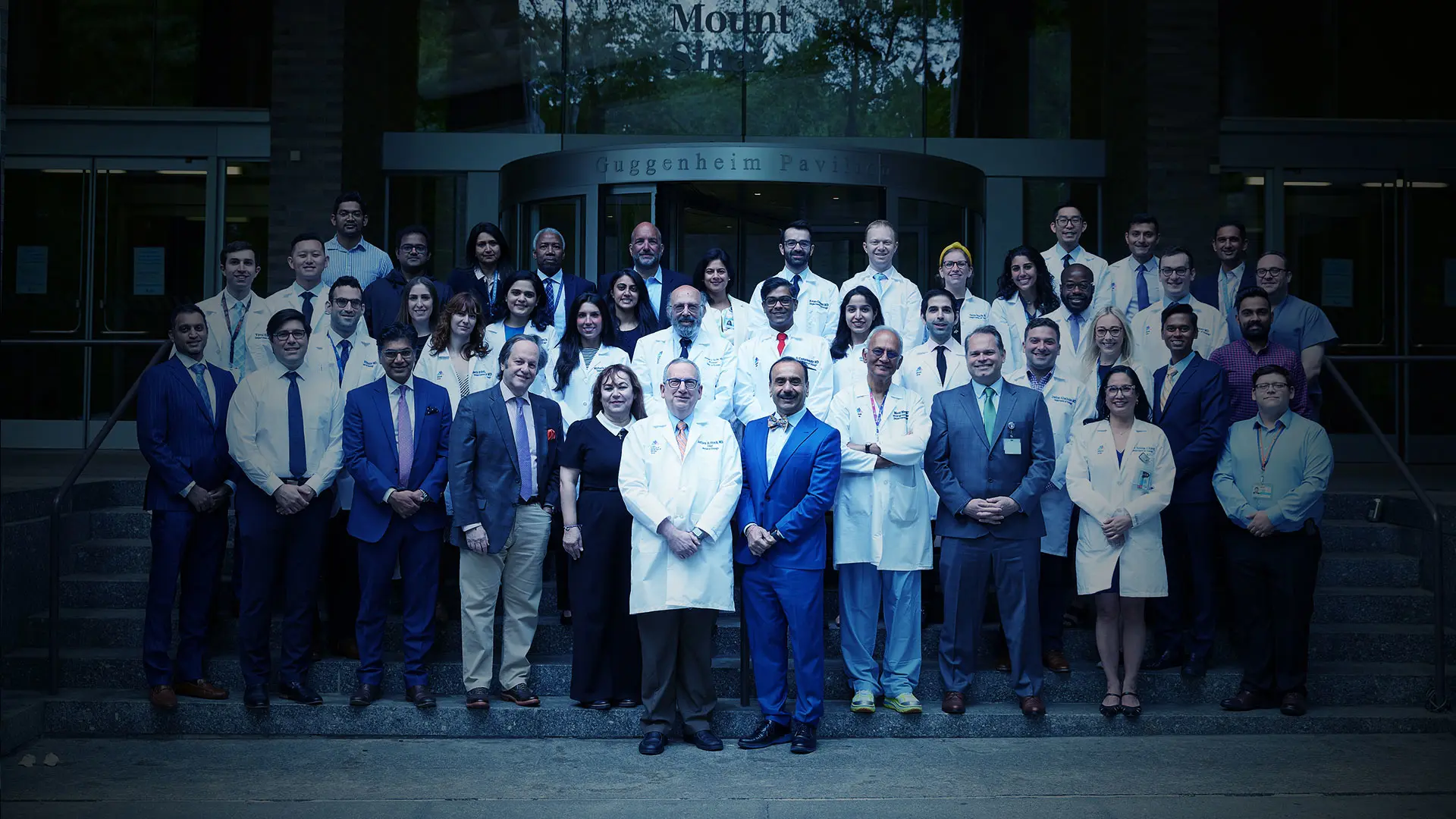
The Department of Urology offers a training program that is designed to train residents in all aspects of the medical and surgical evaluation and treatment of genitourinary disease.
As part of the Mount Sinai Health System, the Department of Urology offers a training program that provides residents with the resources of the largest network of hospitals in New York. The program, accredited by the Accreditation Council for Graduate Medical Education, is designed to train residents in all aspects of the medical and surgical evaluation and treatment of genitourinary disease.
Recent graduates have matched into the most competitive fellowship positions and have secured prestigious academic and private practice positions. In addition, the program has been growing and is one of the largest of its kind in the United States.
“Over the past five years, I have enjoyed the support and encouragement of the Department for my clinical, surgical, and academic growth,” says Ali Zahalka, MD, PhD, one of the chief residents. “Under Dr. Tewari's mentorship, I have traveled to Serbia to pursue a novel nerve transplantation collaboration, have conducted an investigator-initiated phase 1 clinical trial, and published numerous abstracts and articles. The Mount Sinai urology residency has prepared me for a career as a surgeon-scientist.” Ash Tewari, MBBS, MCh, FRCS (Hon.) is Chair of the Milton and Carroll Petrie Department of Urology at the Icahn School of Medicine at Mount Sinai.
A key focus for program leaders, and one reason for its success, is a commitment to continuous improvement, and a critical element of that has been keeping lines of communication open.

“There aren’t many schools that can offer the breadth and depth of expertise we’re able to as part of the didactic experience for students,” says Jeffrey A. Stock, MD, Chief of Pediatric Urology and Director of the Urology Residency Program.
In fact, residents know that their ideas and suggestions for constructive change could well come to life.
For example, as the number of older oncology patients treated at Mount Sinai hospitals for bladder and prostate cancers grew, residents recognized the urgent need for greater support of this fragile population following discharge.
“They came to us and made the case that some of these patients are 85 and older and live in walk-ups, and we need to make sure they’re able to get the hands-on care, medications, and support they require once they return to their homes,” says Jeffrey A. Stock, MD, Professor and Chief of Pediatric Urology at Icahn Mount Sinai, and Director of the Urology Residency Program. “We listened carefully to them and responded by partnering with our departments of Social Services, Rehabilitation Medicine, and Geriatrics and Palliative Medicine to ensure these patients are evaluated before surgery, and have the resources they need afterwards.”
“My mentors at Mount Sinai have prepared me to be an excellent surgeon and compassionate clinician,” says Blake Ryan, MD. “I have felt supported the entire journey by the program leadership team. They listen to feedback from residents and give us what we need to become successful urologists.”
Residents also found a responsive ear from leadership and faculty when they asked for more rigorous didactics to help them prepare for annual urology board exams.
“We identified the importance of enhancing our weekly lectures program through collaborative insights gathered from our residents,” says Priyanka Dwivedi, EdD, MAEd, Senior Director, Medical Education and Faculty Affairs. “So, we worked with them on a solution that significantly changed the curriculum, style, and format of these in-service preparatory sessions.”
The theme of continuous improvement stands as the cornerstone of the residency program, which accepts five new trainees a year from among a field of nearly 400 applicants from top medical schools around the world.
“I have felt supported the entire journey by the program leadership team. They listen to feedback from residents and give us what we need to become successful urologists.”
-Blake Ryan, MD

“We want to listen and talk to residents to learn what their greatest needs are," says Priyanka Dwivedi, EdD, MAEd, Senior Director, Medical Education and Faculty Affairs
The growth in the program mirrors the growth of the Urology Department itself in recent years in terms of surgical volume and increased specialization. Complementing the residency initiative is a robust fellowship program whose 10 subspecialty offerings include recently added urologic oncology and reconstructive urology, with others planned.
Staying connected to residents is among the greatest priorities—and challenges—facing program leaders. One way they’ve risen to the occasion is through town hall meetings, held quarterly or as needed.
“We want to listen and talk to residents to learn what their greatest needs are, whether they be in robotics or reconstruction or areas we haven’t even considered,” says Dr. Dwivedi, who leads the town halls along with Dr. Stock and Christy Poppe, Senior Program Coordinator. “These meetings are a recognition on our part that the residency program has to constantly evolve to reflect changing demographics, technology, and the practice of medicine within our field.”
On a more personalized level, residents are engaged in ongoing conversations with mentors through a highly structured site coach program begun in fall 2021. This effort improved on the Department’s previous mentoring program by allowing trainees to receive feedback from site coaches at each of the five hospitals that are part of the resident’s annual rotation. The program is focused at The Mount Sinai Hospital, with rotations at Mount Sinai Morningside, Mount Sinai Beth Israel, Mount Sinai West, Elmhurst Hospital Center, and Queens Hospital Center.
“We saw the need for dedicated and consistent mentoring since our residents are spread across the city,” says Dr. Stock. Trainees meet with their site coach at the beginning, mid-point, and conclusion of their rotation to “triple-check that they’ve met their clinical and surgical goals for that location.”
At the same time, residents are able to draw on the knowledge and skills of a sizable and widely recognized Urology Department faculty that includes four specialists in reconstructive urology alone, and three in bladder cancer.
“There aren’t many schools that can offer the breadth and depth of expertise we’re able to as part of the didactic experience for students,” says Dr. Stock. “From their exposure to so many different backgrounds, opinions, and styles of medical practice, they get a well-informed and balanced picture of what it’s like to be a urologist today.”
Raghav Gupta, MD, another resident, said that rotating through five large New York hospitals and numerous outpatient care centers, and working alongside experienced faculty, provided a truly immersive clinical experience.
When the junior resident team inquired if it would be possible to increase their exposure to robotic urologic surgery, program leaders responded. During an oncology symposium held at Mount Sinai, they brought a renowned group of robotic surgeons and instructors from the Orsi Academy in Belgium, along with many da Vinci robotic consoles, to New York to practice cadaveric dissections.
“With the backing of program leadership, who are both receptive and dedicated to ensuring our success, we have the tools needed to flourish,” Dr. Gupta said.
